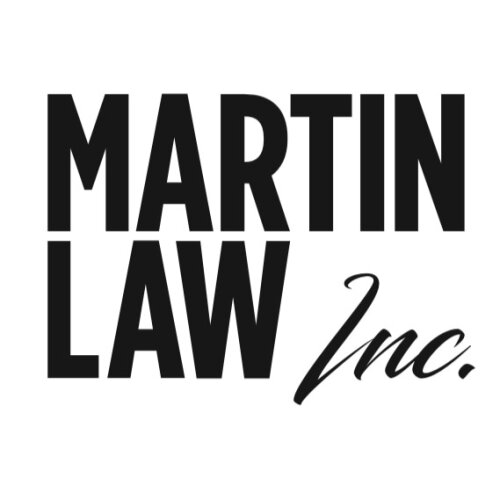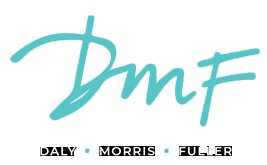Best Tax Increment Financing Lawyers in Westville
Share your needs with us, get contacted by law firms.
Free. Takes 2 min.
List of the best lawyers in Westville, South Africa
About Tax Increment Financing Law in Westville, South Africa
Tax Increment Financing (TIF) is a special funding tool used for urban development and infrastructure improvement projects. In Westville, South Africa, TIF enables local authorities to fund redevelopment projects by using the expected increase in property tax revenues resulting from the project’s success. The process involves designating a specific area as a TIF district, making investments in public infrastructure or development, and then using the incremental increase in property tax revenues - those above the original tax base - to pay for the initial improvements. Although TIF is more commonly associated with the United States, various South African municipalities, including those within KwaZulu-Natal province, have adopted similar models within their local integrated development frameworks, particularly as tools for urban renewal and spatial transformation.
Why You May Need a Lawyer
Navigating Tax Increment Financing arrangements is complex and typically involves negotiation with local councils, understanding detailed legal and financial documentation, and ensuring regulatory compliance. Legal assistance is often required in the following situations:
- Drafting and negotiating development agreements between developers and the municipality.
- Reviewing or challenging the creation of a TIF district or amendments to its boundaries.
- Advising on compliance with local municipal finance management laws and regulations.
- Assisting with risk assessment, including tax implications and land-use considerations.
- Representing clients in disputes over allocation of increased tax revenues.
- Ensuring community stakeholders' interests and rights are adequately represented.
Local Laws Overview
Tax Increment Financing in Westville operates within a legislative framework that includes the Municipal Finance Management Act (MFMA), related Treasury Regulations, and the municipality’s own by-laws and integrated development plans. Key aspects include:
- Definition of TIF Districts: The local council may designate a TIF district in areas targeted for economic development.
- Public Participation: The law requires public notice and opportunities for public input before establishing a TIF district.
- Authorisation of Expenditure: Funding for projects must align with the municipal budget, be approved by council, and be reported to Provincial Treasury.
- Allocation of Incremental Taxes: Increases in property tax revenue in a TIF district may be earmarked specifically for project funding, typically for a set period.
- Transparency and Reporting: Municipalities must provide transparent reporting regarding the use of TIF funds and progress on the projects.
- Legal Challenges: Stakeholders can challenge TIF designations, especially if procedural or consultation requirements are not fulfilled.
Frequently Asked Questions
What is Tax Increment Financing and how is it used in Westville?
Tax Increment Financing is a mechanism where increases in property tax revenues from a designated area are used to finance infrastructure and development projects in that area. In Westville, it’s used to encourage economic growth, urban renewal, and the upgrading of public spaces.
Who can initiate a TIF project in Westville?
Typically, the local municipality initiates TIF projects, sometimes in partnership with private developers, community groups, or other stakeholders.
How does a TIF district get approved?
The local council must follow a consultative process as outlined in municipal by-laws, which involves notice to the public, opportunity for comment, detailed project justification, and formal approval by the council.
What types of projects can TIF fund?
TIF can fund infrastructure upgrades such as roads, sidewalks, lighting, parks, community facilities, and other public improvements that can spur economic development.
Is my property subject to increased taxes because of a TIF?
Property owners within a TIF district may see increased property values, and therefore taxes, but the TIF itself does not raise property taxes; it redirects any increase to pay for improvements.
How are the funds managed and who oversees them?
Funds are managed by the municipality, subject to oversight by the city council, local treasury, and, where required, provincial authorities. Regular public reporting is mandated.
Can community members influence TIF projects?
Yes, public participation is an important component. Attend public meetings, submit feedback during comment periods, and engage with local councillors.
What are the risks with TIF projects?
Potential risks include project delays, cost overruns, insufficient increases in property values, and possible disputes over fund allocation or use.
How long does a TIF district typically exist?
TIF districts have predetermined terms, often ranging from 10 to 25 years, depending on the scope of the redevelopment project and anticipated returns.
What if I disagree with the terms or existence of a TIF district?
You may submit objections during public consultation phases or seek legal recourse if there are procedural or substantive grounds, such as inadequate consultation or noncompliance with applicable laws.
Additional Resources
If you need further information or support, here are some valuable resources:
- KZN Department of Cooperative Governance and Traditional Affairs (COGTA) - for guidelines on municipal financial management.
- eThekwini Municipality Department of Economic Development - for local economic development and project planning resources.
- South African Municipal Workers’ Union (SAMWU) - for community engagement and advocacy support.
- Legal Aid South Africa - for publicly funded legal advice and representation.
- KwaZulu-Natal Provincial Treasury - for information on public funding and financial compliance.
- Local community advice offices in Westville - for assistance navigating public processes.
Next Steps
If you believe you require legal assistance with matters related to Tax Increment Financing in Westville, consider the following actions:
- Gather all relevant documents, including project plans, public notices, property information, and correspondence with the municipality.
- Prepare a summary of your concerns or questions regarding the TIF district or project.
- Contact a local attorney with experience in municipal finance, property law, or urban development.
- Utilize free or low-cost legal clinics and advice offices if cost is a concern.
- Engage in public meetings and discussions to stay informed about developments in your area.
- Monitor municipal websites and notice boards for updates or new proposals related to TIF districts.
Early legal advice can help you protect your interests, ensure due process is followed, and may prevent costly disputes in the future.
Lawzana helps you find the best lawyers and law firms in Westville through a curated and pre-screened list of qualified legal professionals. Our platform offers rankings and detailed profiles of attorneys and law firms, allowing you to compare based on practice areas, including Tax Increment Financing, experience, and client feedback.
Each profile includes a description of the firm's areas of practice, client reviews, team members and partners, year of establishment, spoken languages, office locations, contact information, social media presence, and any published articles or resources. Most firms on our platform speak English and are experienced in both local and international legal matters.
Get a quote from top-rated law firms in Westville, South Africa — quickly, securely, and without unnecessary hassle.
Disclaimer:
The information provided on this page is for general informational purposes only and does not constitute legal advice. While we strive to ensure the accuracy and relevance of the content, legal information may change over time, and interpretations of the law can vary. You should always consult with a qualified legal professional for advice specific to your situation.
We disclaim all liability for actions taken or not taken based on the content of this page. If you believe any information is incorrect or outdated, please contact us, and we will review and update it where appropriate.











